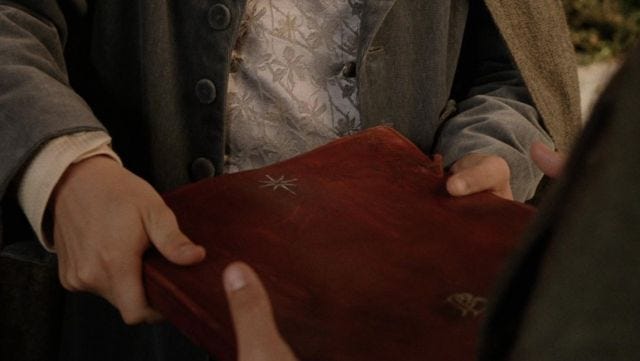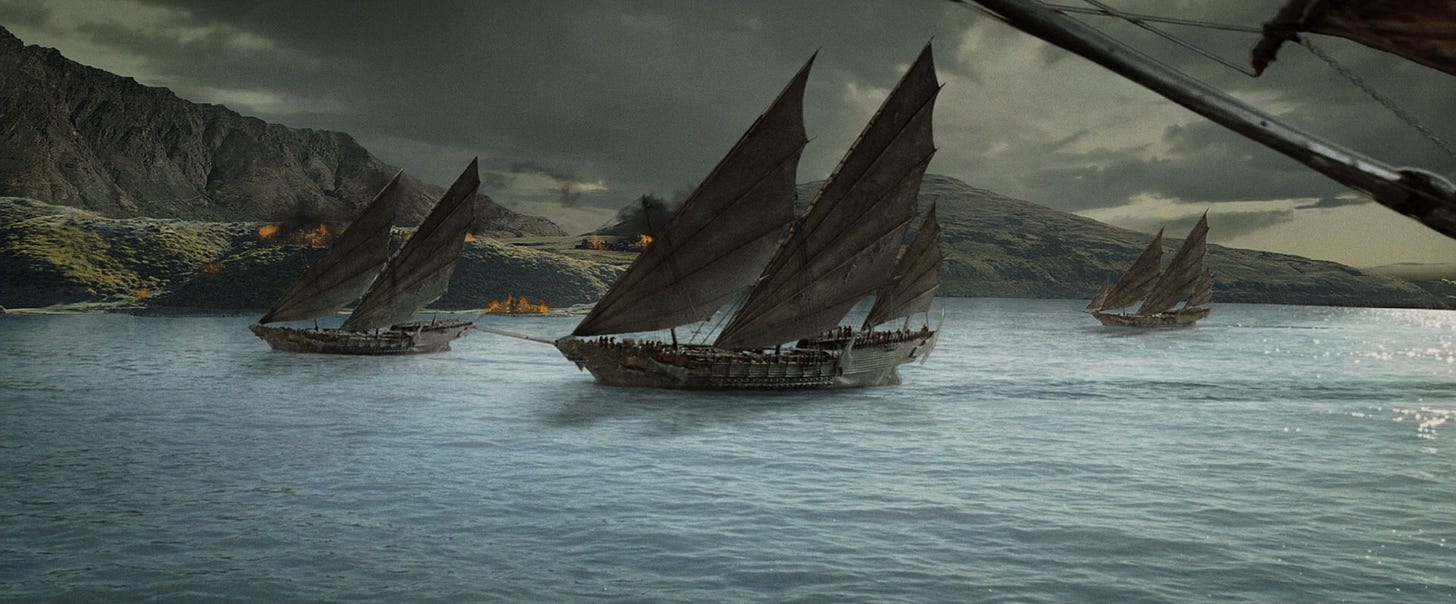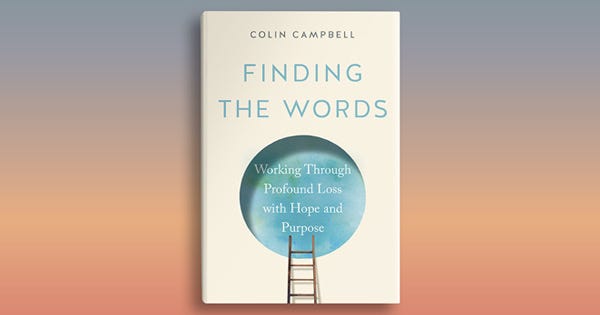💎 Treasures #007: April '23 Mathoms
Dark Lords, Dancing Bears, and Hope and Purpose in Grief
This is the second installment in a new monthly series, Book Notes, a monthly feature where I share excerpts from and comments on what I’ve been reading recently. The quotes and any comments from the first book will always be free, but any others are for paid subscribers.
In today’s Book Notes: The Fall of Númenor, Finding the Words, and Life on the Vine.
The Fall of Númenor—By the time I sent out the first Book Notes last month, I had only just begun reading The Fall of Númenor and my thoughts were mainly centered on a description in the introduction of the recurring dream of Tolkien’s that influenced his work in several different ways but specifically influenced Númenor. I’m about 1/3 of the way through the book now and am aiming to finish it by next month’s Book Notes, but I’m so glad that a volume like this collecting Tolkein’s writings on the Second Age exists and am enjoying it immensely.
In the opening chapters, several themes stood out to me: the love of the Númenóreans for the sea, the relationship between people and one particular species of animal life on Númenór, and the descriptions of Sauron.
Love of the Sea
“In the Sea the strong men took their greatest delight” (38).
Above all arts they nourished ship-building and sea-craft, and they became mariners whose like shall never be again since the world was diminished; and voyaging upon the wide seas was the chief feat and adventure of their hardy men in the gallant days of their youth. (53)
It’s no surprise that as island-dwellers the greatest delight of the Númenóreans came to be in the Sea and it is fascinating to read directly about it. This love of seafaring and skill in the craft of ship-building has an effect that lingers even into the Third Age and the events of The Lord of the Rings, because—though they descend into evil—the Corsairs of Umbar are originally descendants of Númenór the same as Gondor.
Of Men and Bears
There are many fascinating details in the opening chapters about the flora and fauna of Númenór, including an intriguing description of the connection between the malinornë trees of Númenór and of Lothlorien.1
But by far the most interesting tidbit to me is the description of the relationship between the people of Númenór and the bears, between whom there was never any hostility. In fact, the bears “would often visit them [people], in the casual manner of one householder calling upon another. At such times they were often offered honey, to their delight” (20). And not only were the bears good neighbors who called occasionally to eat with their human friends: they danced for them!
Most strange of all were the bear-dances. The bears, the black bears especially, had curious dances of their own; but these seem to have become improved and elaborated by the instruction of Men. At times the bears would perform dances for the entertainment of their human friends. The most famous was the Great Bear Dance (ruxoälë) of Tompollë in the Forostar, to which every year in the autumn many would come from all parts of the island…at which a great concourse was assembled. To those not accustomed to the bears the slow (but dignified) motions of the bears, sometimes as many as 50 or more together, appeared astonishing and comic. But it was understood by all admitted to the spectacle that there should be no open laughter. The laughter of Men was a sound that the bears could not understand: it alarmed and angered them. (20)
A truly magical and blessed island indeed! It’s almost enough for me to change my answer to what I would do if I woke up in Middle-earth to “go to Númenór to watch one of the bear-dances”!
Sauron in the Second Age
Sauron’s whereabouts and activity during the Second Age is the final thread that stood out to me in this first part of the book. His character development from defeated and (temporarily) repentant lieutenant of Morgoth at the start of the Second Age to main personification of evil in Middle-earth is chronicled by Tolkien in a draft letter:
Sauron was of course not “evil” in origin. He was a “spirit” corrupted by the Prime Dark Lord…Morgoth. He was given an opportunity of repentance, when Morgoth was overcome, but could not face the humiliation of recantation, and suing for pardon; and so his temporary “turn” to good and “benevolence” ended in greater relapse, until he became the main representative of Evil of later ages. But at the beginning of the Second Age he was…not indeed wholly evil. (264, excerpt from Letter 153)
This picture of Sauron in the Second Age no doubt has inspired the writers of The Rings of Power as they depict the events of the Second Age. “Nothing is evil in the beginning,” says Galadriel in The Rings of Power, summing up one of Tolkien’s guiding principles about evil’s inability to create, only corrupt. Tolkien calling Sauron “not indeed wholly evil” at the start of the Second Age, after all the evil that he orchestrated and committed in the service of Morgoth in the First Age is especially interesting to me. But his repentance is not to be.
For while he is not on the main stage directly affecting the course of events yet in The Fall of Númenor, he is stalking around the periphery, ominously biding his time and lying in wait for his moment to seize control.
Finding the Words by Colin Campbell—Because it was the first profound loss that I’ve experienced, I had to learn how to grieve in the weeks following the loss of my youngest brother this year. One of the voices that has helped me and those close to our family understand the process of grief a little more is Colin Campbell. He and his wife lost both their children tragically in a car crash and he has written a book out of the experience of profound loss and deep grief that followed. Here are a few quotes from the opening chapters that I read this month that have stayed with me:








